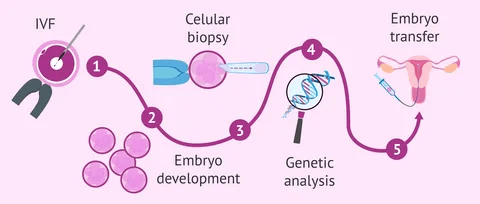Ever wondered what happens behind the scenes of In Vitro Fertilization (IVF)? It might seem complex, but the basic idea is beautiful – science lending a hand to the miracle of life. This blog is here to break down the role of hormones and injections in IVF, making the journey a little less intimidating.
What is IVF
Imagine helping two loving cells (egg and sperm) meet outside the body, in a safe and controlled environment.
That’s IVF in a nutshell! It allows fertilization to happen in a lab dish, creating healthy embryos that can then be implanted in the uterus for pregnancy.

Why are Hormones Important
Our bodies are amazing machines, controlled by tiny messengers called hormones.
In pregnancy, hormones play a starring role, regulating ovulation (egg release) and preparing the body for a baby.
IVF uses specific hormones to give nature a little nudge.
The Injection Crew: Your IVF Allies
Follicle-Stimulating Hormone (FSH): This superstar helps your ovaries grow multiple eggs, increasing your chances of successful fertilization.
Luteinizing Hormone (LH): Remember ovulation? LH is like the conductor, triggering the release of eggs from the ovaries. In IVF, doctors might use LH to support this process.
Human Chorionic Gonadotropin (HCG): Mimicking LH’s role, HCG can be a helpful friend, stimulating ovulation and supporting early pregnancy during IVF.
Types of Injections in IVF:
Think of these injections as tiny signals to your body. There are different types, each playing a specific role:
Gonadotropins: These are the main characters, stimulating egg production. You might inject them yourself at home.
GnRH Agonists & Antagonists: These superheroes keep things on track by preventing premature ovulation and giving doctors more control over the timing of egg retrieval.
Different IVF Medication Plans:
Doctors personalize the hormone plan based on your needs. Here are some common approaches:
Long Protocol: This plan takes its time, precisely controlling egg development with gonadotropins.
Short Protocol: Quicker than the long route, this might be suitable for specific situations.
Antagonist Protocol: Here, GnRH antagonists prevent early ovulation, offering flexibility in scheduling egg retrieval.
Are there Side Effects
As with any medication, there can be side effects. Common ones include:
Ovarian Hyperstimulation Syndrome (OHSS): This can cause swollen ovaries, but doctors take precautions to minimize the risk.
Injection Site Reactions: Redness, swelling, or discomfort at the injection site are manageable with proper techniques.
Cost Considerations:
IVF medications can vary in cost depending on factors like dosage and insurance coverage.
There are ways to save, such as generic medications or patient assistance programs.
Tips for Managing IVF Medications:
Stay Organized: Use medication calendars or reminder apps to stay on track with dosages and timings.
Emotional Support is Key: IVF can be emotionally challenging. Talk to your doctor, join a support group, or lean on loved ones.
Remember:
Each injection is a tiny step towards your dream.
With knowledge, support, and a positive attitude, success in your IVF journey is within reach.
Empowered by knowledge, you can embark on your IVF journey with confidence. There’s hope, there’s support, and there’s a path to parenthood waiting for you!

